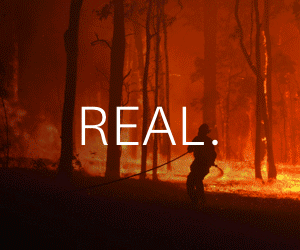Health authorities have defended having no medical staff at a remote community when the “extremely unlikely” fatal police shooting of an Indigenous teenager occurred.
Warlpiri-Luritja man Kumanjayi Walker bled to death on a police cell floor in Yuendumu after being shot by then-constable Zachary Rolfe during a botched arrest at a home in the Northern Territory community in November 2019.
In March 2022, an NT Supreme Court jury acquitted Mr Rolfe of murder.
The mortally wounded 19-year-old was taken from his home to the police station, where Constable Rolfe tried to pack his wounds while a veteran nurse, Lorraine Walcott, urgently made her way back to the community after being evacuated days earlier.
Multiple break-ins at the nurses’ homes had led to all medical staff being “temporarily withdrawn” for safety reasons, NT Health counsel Tom Hutton told coroner Elisabeth Armitage in Alice Springs on Thursday, during closing submissions at a long-running inquest.

Mr Hutton said delivering health services while maintaining staff safety was “the core business of NT Health”.
“Ultimately what transpired on 9 November 2019 was an extremely unlikely and tragic event prior to the shooting,” he said.
“(NT Health manager David Reeve) was not aware of a single incident of a use of force by police in a remote community in Central Australia that had required an emergency response (before that night).”

Mr Walker died in the local police station as his family waited outside.
Mr Hutton said the notion institutional racism was a contributing fact in Mr Walker’s death was “serious finding”.
“It cuts against the volume of work that (NT Health) is doing, which demonstrates its real commitment to First Nations people, to strengthen the way services are delivered,” he said.
“The common factor linking these events and the reason they are referred to is that they are examples of occupational violence perpetrated against service providers in remote communities.”
Department of Territory Families, Housing and Community counsel Michael McCarthy told the inquest Mr Walker was known to child protection in his early life, but always remained with family.
“Kumanjayi was a strong young man who had a spark about him and made an incredible connection with his family and Yuendumu,” he said.
“I also want to acknowledge that there is more work to be done across all aspects of service delivery, particularly in remote communities, including in remote housing, child protection and family support, domestic and family violence, and youth justice.”
But he said there were examples of “good practice and examples of where the department fell short,” including Mr Walker’s first period in detention.
He recognised there were significant periods in detention where the teen received limited support.
Territory Families also spoke about the need for investment in remote housing, which under a federal and territory national partnership had been given $4 billion over the next 10 years.
Closing statements continued on Thursday, with institutional responses from NT Police and the Northern Territory Police Association.
Counsel Assisting Dr Peggy Dwyer SC is expected to release proposed findings by December 17.
13YARN 13 92 76
Lifeline 13 11 14



















